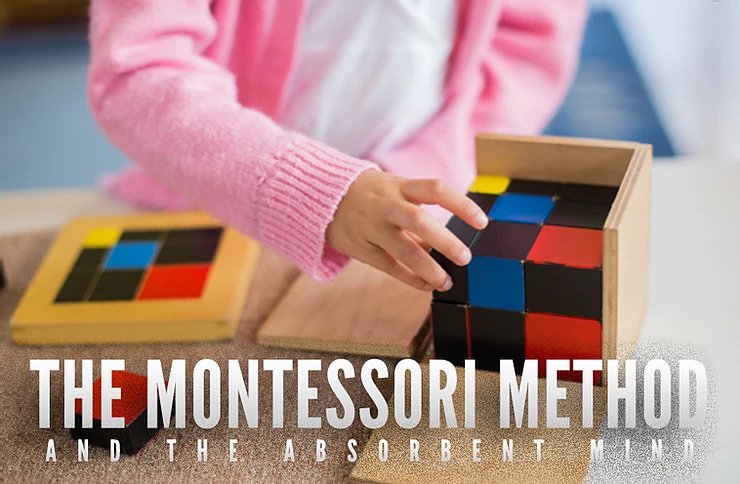In her studies of educational philosophies, Dr. Maria Montessori focused on the development of the child – the importance of the early years and the way in which children, at a very young age, begin to absorb everything around them. In observing child development, she recognized the significance of the ability of the child to learn unconsciously from his environment, and defined this as “The Absorbent Mind”.

The absorbent mind is the capacity for children to learn language from their environment, without rules, instructions, or direct teaching. Every child learns their mother tongue simply by being exposed to it on a daily basis. Up to the age of 6, a child is able to effortlessly acquire language by absorbing words and their meaning through the social constructs created within their environment.
Children unconsciously absorb social constructs and develop their personalities during these formative years. While some things are consciously taught, a great deal of what a child learns is achieved through the observations of their own surroundings. It is often said that the mind of a child is like a camera, observing everything in its environment, and forms a clear picture of a fixed record.
Dr. Montessori’s understanding of this sensitive period is significant, as it frames our understanding of the development of the child. During this stage of life, the young child, when given the opportunity to experience the wonders of the world, is capable of acquiring significant knowledge. Her work illustrates the importance of creating a prepared environment from which they can absorb and learn with ease.
It is in this manner then, that the Montessori Early Childhood Method of Education remains an ideal program to introduce children to a world of discovery. Children are introduced to activities in language, mathematics, science, history, geography, art, and music. Practical life skills are honed through activities that replicate everyday tasks that are completed in their own environment. Shelves within the classroom are filled with materials that provide children the opportunity for purposeful activity.
An environment that promotes learning during this sensitive period when the absorbent mind is developing is ideal, and the Montessori classroom does just that. A young child’s capacity to absorb knowledge is limitless, and within a carefully prepared environment, can provide them with remarkable opportunities.

